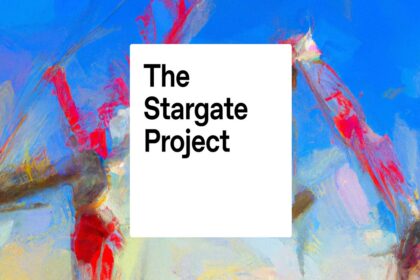Microsoft Joins the Cloud Infrastructure Services Providers of Europe
Microsoft is set to become the latest member of the Cloud Infrastructure Services Providers of Europe (CISPE). The tech giant will be the 39th member of the trade association, a move first reported by The Register. This decision is particularly notable given that just six months ago, CISPE resolved an antitrust complaint against Microsoft for alleged anti-competitive practices.
AWS Opposes Microsoft’s Membership
Despite the approval of Microsoft’s membership, the decision was not without contention. Amazon Web Services (AWS), an existing CISPE member, opposed Microsoft’s application. However, the board of directors overruled AWS’s objections, allowing Microsoft to join as a non-voting adherent member.
A CISPE spokesperson noted, “There are lots of areas where we are very much in alignment, so it is useful to have Microsoft participate. This is a step towards a greater CISPE.” AWS declined to comment on the matter when approached by The Register.
Microsoft’s Response to CISPE Membership
Microsoft has expressed gratitude for its acceptance into CISPE, emphasizing a commitment to collaboration. A company spokesperson stated, “We are grateful to the CISPE membership for accepting our application as a non-voting adherent member and will continue to focus on building a constructive partnership that supports European cloud providers.”
Background: CISPE’s Complaint Against Microsoft
CISPE’s decision to welcome Microsoft comes shortly after resolving an antitrust complaint that the trade association filed in 2022. The complaint accused Microsoft of engaging in contractual practices that harmed Europe’s cloud computing ecosystem by limiting customer choice in cloud deployments.
In July 2024, the two parties reached a settlement. Under the agreement, Microsoft:
- Paid nearly $22 million in compensation.
- Introduced Azure Stack HCI for European cloud providers, enabling CISPE members to run Microsoft software on their platforms at equivalent prices to Microsoft’s own offerings.
- Compensated CISPE members for revenue losses tied to licensing costs over the past two years.
Industry Reaction to the Settlement
While the settlement marked the resolution of CISPE’s complaint, it drew criticism from competitors. AWS and Google Cloud were among those voicing concerns about Microsoft’s licensing practices.
Google’s head of platform, Amit Zavery, remarked at the time, “We are exploring our options to continue to fight against Microsoft’s anti-competitive licensing in order to promote choice, innovation, and the growth of the digital economy in Europe.”
Google’s Alternative Offer to CISPE
In an attempt to encourage CISPE to persist with its complaint, Google proposed a substantial offer, including:
- €4 million ($4.22 million) for a “Members Innovation Fund.”
- €10 million ($10.4 million) for CISPE membership resources.
- $104.1 million in Google Distributed Cloud software credits over five years.
Google ultimately joined the Open Cloud Coalition (OCC), launched in October 2024. Following this move, Microsoft accused Google of engaging in “shadow campaigns” to undermine its position in the market.
Broader Industry Scrutiny: Ongoing Investigations
Although Microsoft’s CISPE membership suggests a resolution with the trade association, other investigations into the cloud computing industry remain active. In the UK, the Competition and Markets Authority (CMA) continues its probe into cloud licensing practices. Initially launched after an Ofcom study, the investigation has been extended by four months due to the complexity of the issues involved. The CMA is expected to release its findings later this month.
FAQ
Why is Microsoft joining CISPE significant?
Microsoft’s membership is notable given CISPE’s prior antitrust complaint against the company. The decision suggests a strategic alignment and a potential shift in industry collaboration.
What was the outcome of CISPE’s complaint against Microsoft?
Microsoft agreed to pay $22 million, provide fair pricing for Azure Stack HCI, and compensate CISPE members for lost revenues tied to licensing costs.
Why did AWS oppose Microsoft’s membership in CISPE?
AWS, a key competitor, likely viewed Microsoft’s membership as conflicting with its own interests. Despite this, the board of directors approved Microsoft’s application.
What is the CMA investigating?
The UK’s CMA is examining licensing practices within the cloud industry, focusing on potential anti-competitive behaviors that affect market fairness.
What is Google’s role in this scenario?
Google attempted to encourage CISPE to continue its complaint against Microsoft by offering significant financial incentives and cloud credits. Although unsuccessful, Google has since joined the Open Cloud Coalition.



















